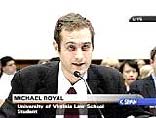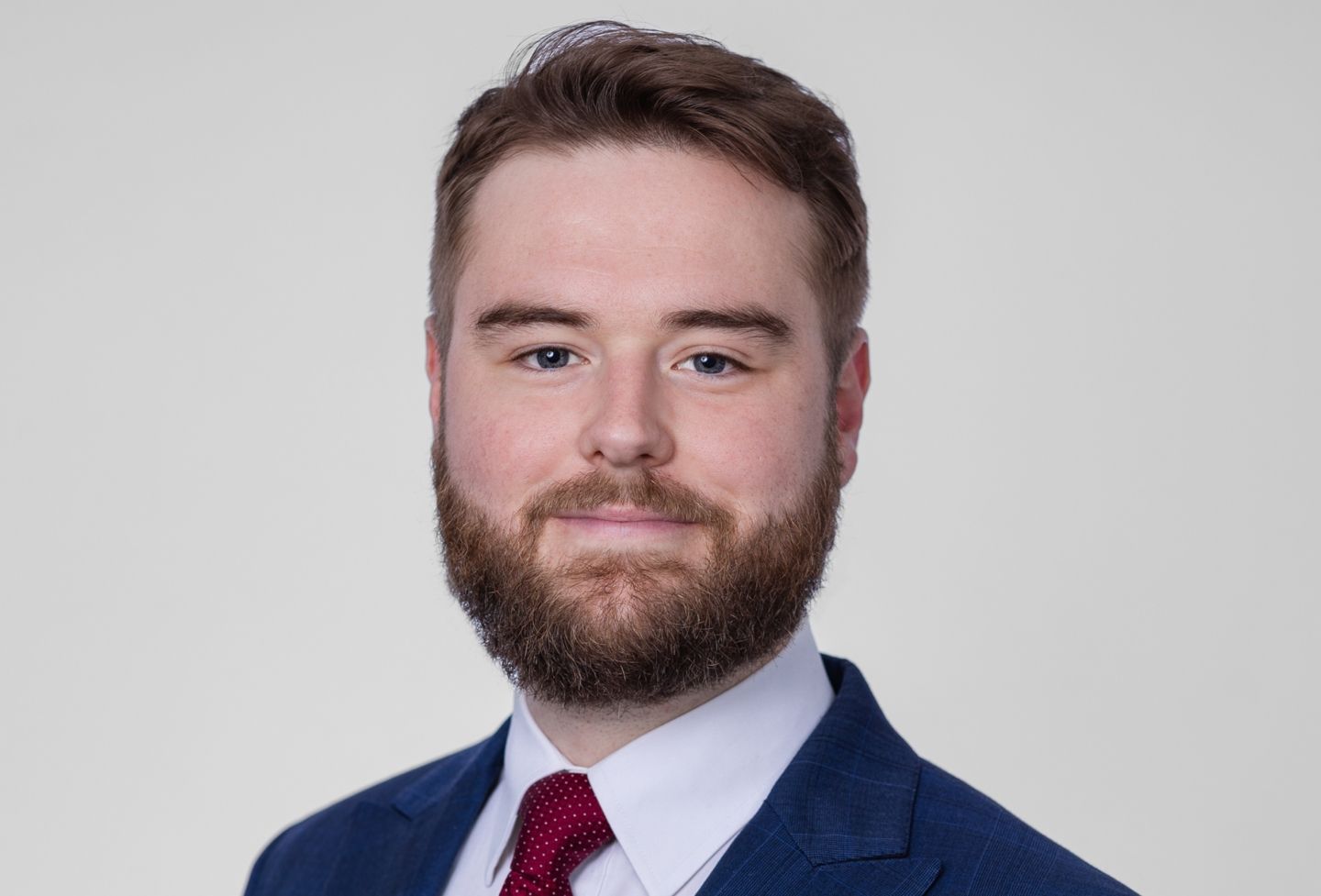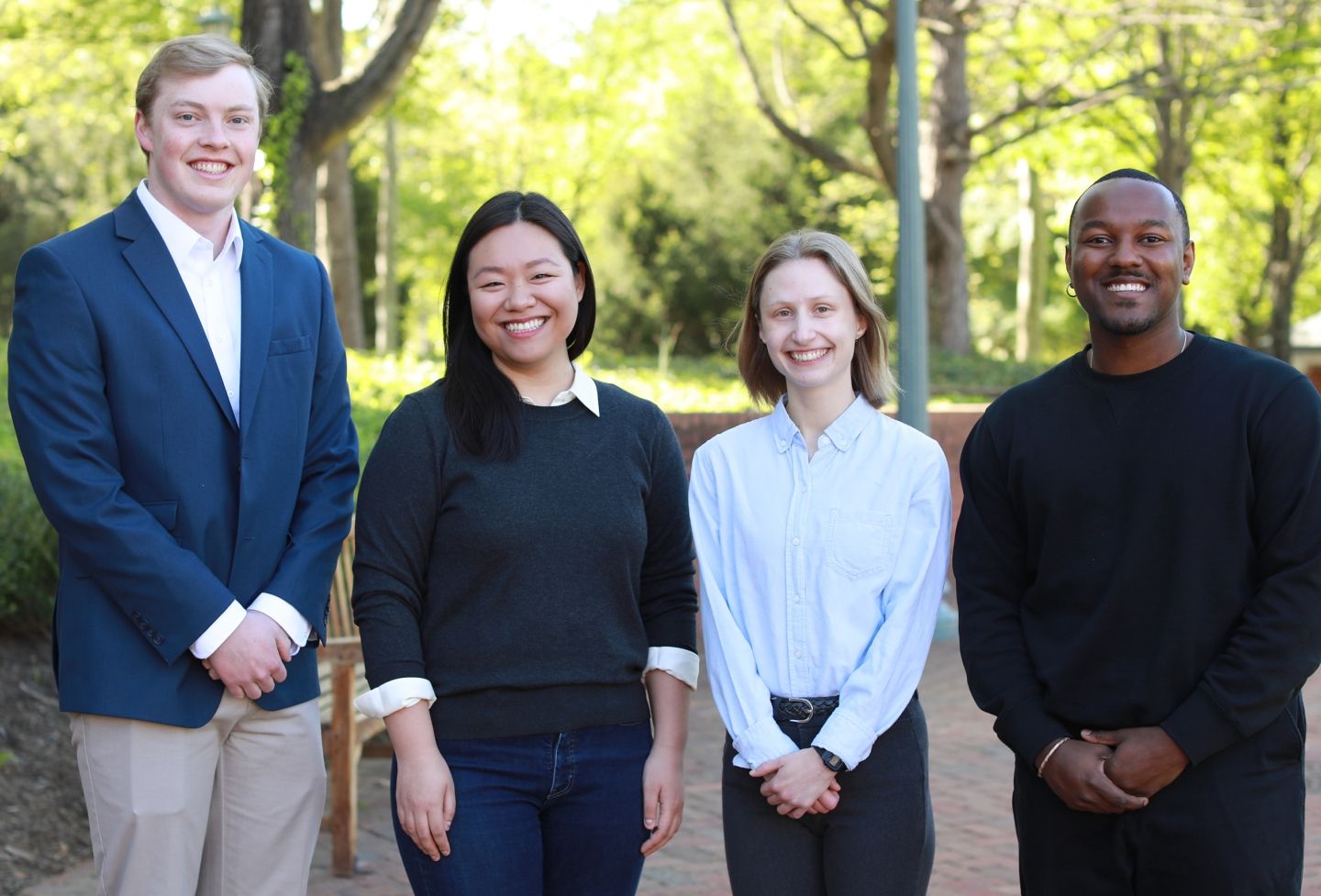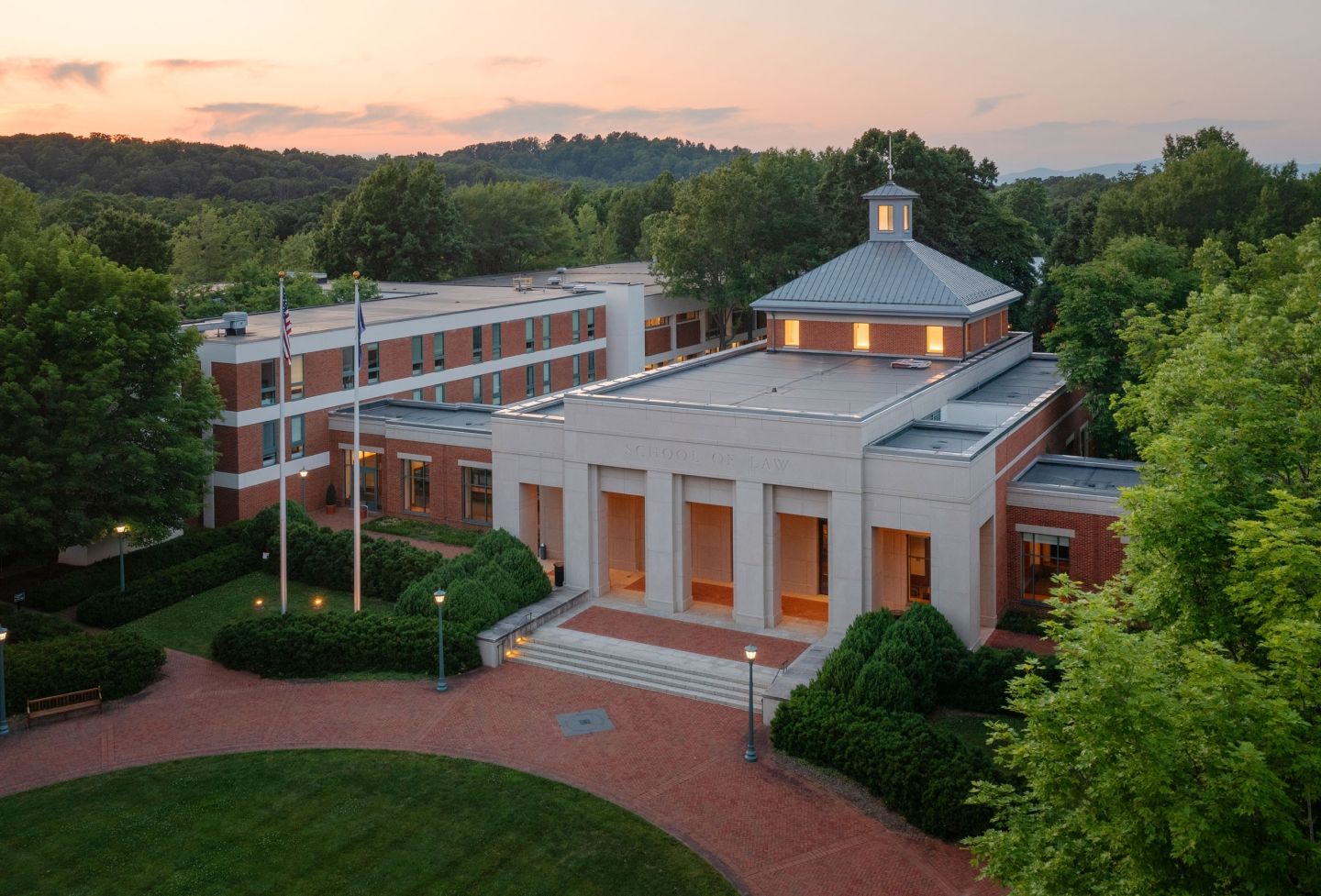Student Testifies Before Congress on Human Rights Abuses in Cuba Students Interview Dissident Leaders, Study Free Speech in Cuba

Human Rights Study Project (HRSP) Director Michael Royal testified before Congress April 16 in a hearing held by the House Committee on International Relations concerning the Cuban government's recent crackdown on dissidents.
Royal and other members of HRSP had traveled to Cuba over spring break to study free speech issues and interview dissidents. They presented their findings at the Law School earlier this month and soon after a non-governmental organization director the group worked with recommended to the Committee that Royal testify about the group's experiences and research.
"I wanted to try to provide a sense of what some of these people's lives are like — what they're going through — to give a sense of the struggle that's going on in Cuba to gain freedom of expression," Royal said. "This is certainly a time for outrage against Castro and his government." He focused his remarks to the Committee on his specific area of study, the independent library movement in Cuba, which faced considerable hostility from the Cuban government during the recent crackdown.
In the same hearing, Committee members heard from several U.S. Department of State Assistant Secretaries, Cuban dissident leaders and NGO representatives. Royal added that many of the Committee members may have already decided that keeping a tight U.S. embargo and restrictions on Cuba is the solution, but "I don't necessarily follow that line of thinking." At the conclusion of his testimony he struck a cautionary note about relying on the traditional approach to dealing with Castro.
Royal called his day in Congress a "terrific experience."
"I'm very happy that our organization had a platform to raise awareness about the human rights violations going on in the world," he said. "I went to Washington, but it was an enormous team effort this semester that made an opportunity like this even conceivable."
Royal added, "I can't wait to see who will be on next year's team and what kind of project they will come up with." Students interested in working on HRSP next year can e-mail Royal at @email.

Although he and other members of the Human Rights Study Project (HRSP) were visiting a country under rule of a dictator, David Vassar didn't really feel in danger until their Cuban taxi driver balked at taking them home after learning they were researching free speech issues. With a little extra money, they got home, dropped off "inconspicuously" to protect their driver. After that, he didn't feel safe anymore, Vassar told the audience at HRSP's presentation on free speech and Cuba April 8 at the Law School.
Several Law and University graduate students met with Cuban dissidents and free speech advocates during their spring break, just weeks prior to "what is being called the biggest crackdown on dissidents in over a decade," according to second-year Law student Michael Royal. While there, HRSP members interviewed and met independent librarians, journalists, health care workers, regular citizens on the street, and, accidentally, a few government agents. Seven Cubans they interviewed are now in jail, and three of those are serving sentences of 20-27 years.
The group worked with Ricardo Zuniga, a State Department Human Rights Officer at the U.S. Interests Section in Havana who helped set up a meeting with several dissidents and provided contact information for others. "This group of U.Va. law [and graduate] students undertook among the most comprehensive, objective surveys of human right conditions in Cuba of any visitors I've known in my three years dealing with Cuba," Zuniga said in written comments, noting that the students came prepared with contact information about many of the people he recommended they meet. "It is very unusual for a U.S. group to organize a visit outside of the direct control of Cuban government handlers, and still more unusual for a group to meet with democracy advocates."

HRSP, a new student organization, "is an opportunity for law students to work as a team to do some research and travel" — finding information you wouldn't have access to in Charlottesville, Royal said. Royal will be testifying about the group's experiences during a hearing held by the U.S. House of Representatives Committee on International Relations on Wednesday, April 16.
Royal's research included the independent library movement, which began in Cuba in 1998 when a couple heard a speech by Castro at a book fair, where he claimed there were no banned books in Cuba — just not enough money to buy them.
"A couple in Las Tunis took that comment to heart and they started lending books from their own home," he said. In the last few weeks 20 such libraries have been confiscated by the government.
Royal showed a picture of a typical street corner bookstore, which contained books mostly about Fidel Castro and Che Guavera, or other books that agreed with the regime's politics. Foreign newspapers or books were off-limits, even to foreigners. Although there is a national library in Havana, you can't browse books, you have to ask for them. On a tour the students were told they could get any book they wanted, but the translator later asked a worker about this policy and she whispered, "You can check out Animal Farm, but unless you have the red pass it will be reserved for somebody else."
When another librarian was taken away by government officials, his wife closed the library because of the danger. Royal recounted that her brother got upset when talking about conditions in Cuba, and said "I can't go out in the street and say 'I hate Fidel,'" which caused another Cuban in the room to close the doors and windows in case someone would hear, and chastise his outspokenness.

A thousand books from Gisela Delgado's library were confiscated during the crackdown and she also lost her husband, Hector Palacios, a well-known human rights activist who was recently sentenced to 25 years in prison. When the group met with Palacios, he claimed he had been detained over 80 times for political- and speech-related activities and served over a year in jail once for claiming that Castro would not honor his signature on an international human rights treaty.
While the state-run press accounts for the great majority of news reported inside Cuba, it is employed as a tool of the socialist party and used to manipulate people, according to second-year Law student Lance Stern, who investigated the independent journalist movement in Cuba. The foreign press's coverage of Cuba also may be hindered by difficulty in getting time-relevant information and pressure from the Cuban government. Interviews with state representatives require applications, and it may take weeks to receive a response. If media outlets are granted rights into the country, they are often kept on a short leash by limited-time visas.
Many independent journalists became disenchanted with their previous work for the state press, Stern said, and others arrive from different professions. All the journalists interviewed by the group emerged as result of some kind of traumatic oppression from the government. He found a range in the quality of journalism and the motives behind it, although the leaders of the movement were highly reputable journalists with objective perspectives.
Many independent journalists rely on Internet sites like CubaNet News to publish their stories, dictating their articles to such organizations over the phone. Cartes de Cuba is published in Miami, then smuggled back into Cuba. Radio Marti, which attempts to broadcast to Cuba from Miami, is another source of independent journalism. Although many of the Radio Marti airwaves are blocked by the government, some Cubans construct illegal radio antennas to hear the broadcasts. Another source of independent journalism, De Cuba, published in Cuba, featured articles with both points of view.
The publishers of De Cuba, along with most of the independent journalist movement leaders, are now in jail, thanks in part to one Cuban government spy HRSP met, Manual David Orrio, who has since testified against people they interviewed.
News reports have noted that the crackdown had been a long time in the making, and that the government was waiting for the moment when international attention would be diverted, which occurred when the war in Iraq began. Royal said the group talked to Orrio for only three hours, thinking he was an independent journalist. Orrio provided information on the independent journalist movement and asked few questions. There is no sign that he benefited from HRSP's own investigations, Royal said.
"They got an unwelcome lesson in the realities of the Cuban dissident movement, since two of the people we arranged for them to meet later turned out to be Cuban government agents," Zuniga said, adding that the responsibility for the meetings rested with the State Department.
Second-year Law student Azish Filabi said because Cuba is tied to communism, one might think they may also advocate for workers' rights, but "it doesn't necessarily translate into reality.
"The government doesn't work for the people, it's actually the people who work for the government," Filabi said. When a group of Cuban miners needed boots to continue their work, the government would not provide enough, so the workers held a strike until they got the boots they needed. Filabi said that within this model the government would have problems if everyone decided to strike. She added that many activists are pro-reform — not necessarily advocating for a revolution — and work within the system on a small scale to achieve changes. For example, Cuban Pedro Pablo Alvarez, who works for the Unitary Council of Cuban Workers, helps disseminate information to the workforce.
"What most Cubans don't know, according to Pedro, is that job security is legally protected," she said. Alvarez encourages workers to use the dispute resolution system and file a complaint when they are fired.
She added that "in the Cuban system, ideology and reality are not always consistent." Although there has been an influx of tourism since the mid-1990s, there are laws against Cubans vacationing in foreign-operated resorts, and they can't talk to foreigners. "Why can't the Cubans enjoy the fruits of their own labor?"
Considered one of the successes of the Cuban revolution, health care has also suffered in some ways since 1960, according to second-year Law student Katy Caouette, who investigated the effects of speech regulation on health care. In the 1950s, medical care in Cuba was comparable in many respects to several European countries, but there was "little access" in rural areas. "And now the government compares their healthcare to third-world nations" and call that a success, she said. Although doctors' housing is provided, their monthly salary of $25 and under offers scarce support in a country where the cost of food is comparable to U.S. prices. Still, doctors are "dedicated to the people." In Cuba, "people really have a sense of community and want to take care of each other," she said.
According to the dissidents, when Cubans stay in the hospital, they have to bring their own sheets and soap, and wash their own clothing and sheets. There is an independent movement to distribute medical materials, she said, since much of foreign aid to the Cuban government is sold on the black market for a profit. Martha Beatriz Roque Cabello was sentenced to over 20 years for setting up medical supply support system that collected from foreign organizations.
Pregnant women and children up to 1 year old get special attention from the government to help lower the infant mortality rate. "There are programs like that that are designed to get their health indicators to look good," Caouette said. On the other hand, non-life-threatening surgery can be postponed for party meetings.
Caouette recalled one physician in particular, Dr. Hilda Molina, who helped found a renowned international center for neurology supported by the government, with the goal of making the care free. Molina agreed to the government's demands to allow foreigners on one floor of the center, if they were not charged, but later found out the government was in fact collecting money for service. She quit the center and her National Assembly post when the government told her that the center would from then on serve only paying foreigners. Since then, Molina said, she has been followed and her phone conversations have been tapped. They have refused her requests to leave the country. She now lives in a one-room apartment with her 92-year-old mother and recently suffered a fall that broke her wrist. When she went to the hospital, doctors set the bone wrong, so now "she can't use her arm even to button her shirt."
Through her research and interviews with Cuban dissidents, Caouette learned about the "politicization of health" in Cuba. "Everything is political in Cuba," she said. The government uses free education, free housing and free health care to justify the government's oppressive nature. "Everybody has to be a communist first and a professional second."
Although Castro declared Cuba an atheist state in 1960, in 1991 he began to allow people of faith into the party and in 1992 he amended the constitution to proclaim Cuba a lay state that maintained freedom of religion, with the caveat that it was illegal to do anything that goes against the government. The Pope even paid Cuba a much-heralded visit in 1998, although he agreed with Castro in denouncing the U.S. embargo.
Religion "is a very unique way of expression in Cuba," said second-year Law student Claudia Gee. The government will "allow them to have freedom until it gets to the point where they might be threatening the power of the government."
She pointed out that Cuba declared a national holiday to coincide with Christmas and a week to celebrate the Bay of Pigs victory to coincide with Easter, which would prevent people from worshipping Christian holidays, since conflicting with national events is prohibited. She added that the government has grown more lax about enforcing participation in national events when conflicts arise, however.
There were three churches within three blocks of where HRSP members stayed, and all were packed on Sunday morning. In addition to its Catholic community, Cuba has a "vibrant" Jewish community and a Santeria (an Afro-Cuban religion) community as well.
"People typically don't contradict Fidel," Gee said, but when one National Assembly member spoke out against Castro openly in opposition of the death penalty because of his faith, he faced no known reprimand. A priest even spoke out against the recent crackdown during a homily. Two religious magazines — Espacios and Vitral — have been able to address social issues without reprimand because of their religious basis, she said. Vitalis as cutting-edge as De Cuba, but its leaders are protected by the veil of religion.
"It's a place where people have been able to talk about change," Gee said.
Zuniga praised the students' efforts and preparedness, as well as the goals of the program.
"This is an excellent program for the students to pursue, especially if they follow up with the recent legal action taken against many of the people they met with or heard about during their trip," he said. "Their work was first-rate. It was as professional as the work undertaken by NGOs that specialize in legal/human rights issues, and in some ways more rigorous."
Founded in 1819, the University of Virginia School of Law is the second-oldest continuously operating law school in the nation. Consistently ranked among the top law schools, Virginia is a world-renowned training ground for distinguished lawyers and public servants, instilling in them a commitment to leadership, integrity and community service.


